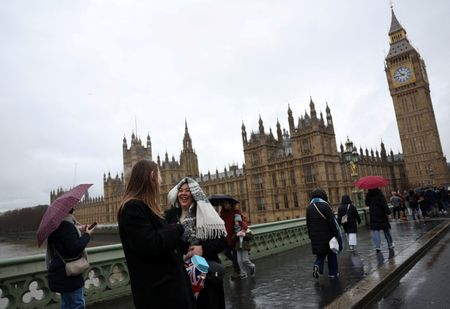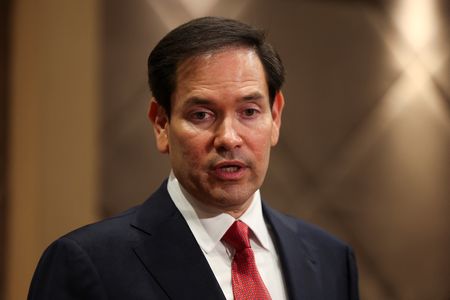By Sinead Cruise
LONDON (Reuters) -One in 10 people in Britain have zero cash savings to draw on in an emergency, according to figures published on Friday by the UK’s top financial watchdog, in findings that underscore the financial vulnerability of millions.
The Financial Conduct Authority said another 21% of people have less than 1,000 pounds ($1,332) in savings and that 1.6 million, or 3% of homeowners, had received support from mortgage or credit lenders to manage repayments in the last two years.
The data makes sobering reading for Britain’s banks and the policymakers tasked with steering a UK economy rattled by inflation, a cooling jobs market and the threat of a global trade war sparked by U.S. President Donald Trump’s tariff hikes.
The Bank of England’s Monetary Policy Committee was split three ways on its May interest rate decision, seven of the nine members backing cuts to reduce the cost of borrowing and keep the economy on track.
Almost two-fifths of adults have unsecured debts, with a median amount of 2,500 pounds, the FCA said.
“Our data shows that finances are stretched for many – with some unable to save for a rainy day. And we know that some do not have the confidence to invest,” said Sarah Pritchard, Executive Director of Consumers and Competition at the FCA.
The FCA’s survey also found that one-third of adults with a defined contribution pension have less than 10,000 pounds saved, while another 12% didn’t know the size of their retirement pots.
Only 8.6% of people received financial advice on investments, pensions or retirement planning in the previous 12 months and around 900,000 adults were classed as “unbanked” in 2024, although this was down from 1.1 million in 2022.
The FCA said it was working to improve access to financial services help, guidance and advice so that people struggling with debts can build a more financially resilient future.
“The FCA’s Financial Lives Survey lays bare the financial tightrope that millions are walking,” Rachael Griffin, tax and financial planning expert at Quilter, said.
“It speaks to a broader cultural reluctance to invest, and perhaps to a lack of confidence or understanding in navigating financial markets,” she added.
($1 = 0.7510 pounds)
(Reporting by Sinead Cruise; Editing by Hugh Lawson)











